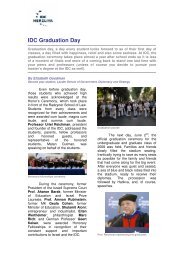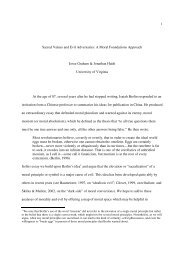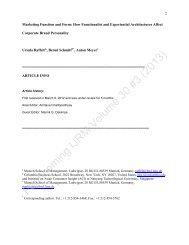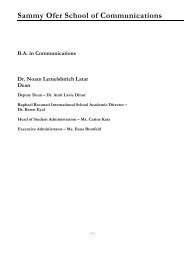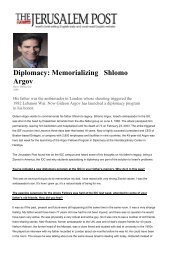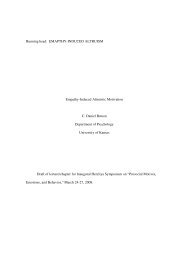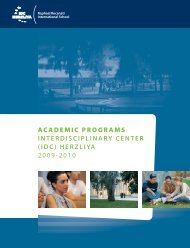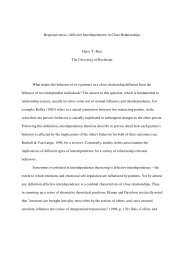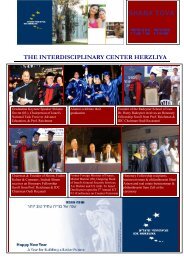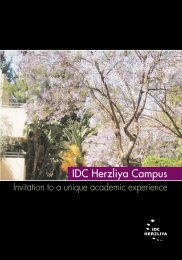The IDC
The IDC
The IDC
You also want an ePaper? Increase the reach of your titles
YUMPU automatically turns print PDFs into web optimized ePapers that Google loves.
BUILDING COALITIONS<br />
Parliamentarians and diplomats joined in assessing the current situation,<br />
including what can and must be achieved through international coalitions<br />
and partnerships. Michał Tomasz Kaminski, president of the European<br />
Conservatives and Reformists Political Group, European Parliament,<br />
European Union, acknowledged that European freedom is under attack,<br />
with many Europeans who “fall victim to moral relativism.” He expressed<br />
assurance that “Europe will never succumb to terror because it can rely<br />
on its brave ally, Israel, which has struggled to defend our values,” but<br />
that gratitude cannot be limited to words. “Europeans frequently need to<br />
be reminded of their tragic past, that totalitarian ideologies wreak untold<br />
damage if left unchecked.” Europe and Israel must stand together to advance<br />
joint anti-terror principles. Dr. Matthew Levitt, senior fellow and director<br />
of the Washington Institute’s Stein Program on Counterterrorism and<br />
Intelligence, spoke of the “cascade of instability” resulting from Iran’s pursuit<br />
of nuclear arms and sponsorship of terror, financed through its own banks.<br />
Eugen Wollfarth, head of the Counter-Terrorism Task Force in the<br />
Auswärtiges Amt (Federal Foreign Office), Berlin, spoke of the danger<br />
posed by home-grown terrorists recruited within Germany and trained in<br />
the Afghan-Pakistani border area. Previously, terrorists moved to Germany<br />
to commit terrorist attacks. Now, they move from Germany to Afganistan<br />
and Pakistan to undergo training. <strong>The</strong>re is no space for illusion, Wollfarth<br />
warned; potential attacks in Germany cannot be ruled out.<br />
Using high-fidelity satellite depictions, Dr. Rohan Gunaratna, head of<br />
the International Centre for Political Violence and Terrorism Research<br />
at Nanyang Technological University, Singapore, described the hostile<br />
and rugged terrain along the Afghan-Pakistani (Af-Pak) border. <strong>The</strong>se<br />
tribal areas are sparse, undeveloped with poor infrastructure and<br />
communication, the border porous. About 25 groups emerged, which are<br />
collectively known as the Pakistan Taliban. Known as FATA (Federally<br />
Administrated Tribal Area), this area is where Europeans go to train in<br />
terrorist camps. In many ways, this structure has been replicated from<br />
Afghanistan to Pakistan. While drone strikes have produced good results<br />
in locating and attacking these camps, greater investment is needed to<br />
stabilize the border, train the police and economically develop that region.<br />
9th AnnuAl ict cOnference<br />
Alain Bauer, president, French Strategic Security Mission; co-founder,<br />
Defence and National Security Council (CDSN), France, noted that<br />
criminologists are not policemen or judges and that his contribution is<br />
to try to understand what criminals and terrorists do. Crime does well in<br />
times of economic crisis, crises attract crime and terror and there is no one<br />
magical solution to the issue of this multi-headed complexity.<br />
OPERATION CAST LEAD: A CASE STUDY IN COMPLEXITY<br />
<strong>The</strong> challenges of Operation Cast Lead in Gaza embodied the complex<br />
issues of asymmetrical warfare and generated much discussion. Col (Res)<br />
Shlomo Mofaz, ICT research associate, noted that on an operational<br />
level, Hamas lost to IDF forces in all clashes and therefore avoided direct<br />
contact, “disappearing” in order to avoid the IDF’s superior manoeuvring<br />
capability, instead using the homes of civilians as battlefields and targets<br />
and making use of international public opinion when civilians were injured<br />
or killed. He recalled that the IDF made more than 250,000 phone calls to<br />
“INDIAN MUSLIMS REFUSED TO<br />
BURY THE MUMBAI ATTACKERS IN<br />
A MUSLIM CEMETERY. THE RECENT<br />
EVENTS HAVE MADE AN IMPACT<br />
ON INDIA-ISRAEL STRATEGIC TIES<br />
INVOLVING CLOSER COOPERATION<br />
ON SECURITY/COUNTER-TERRORISM<br />
THROUGH PERCEPTIONS AND<br />
PRIORITIES GUIDED BY NATIONAL<br />
INTERESTS AND VALUES”<br />
- Col. Behran Sahukar, research fellow, United Service Institute, India<br />
Palestinians in the Gaza Strip during the fighting to warn of upcoming<br />
attacks on the area, and that civilians went to the rooftops, knowing that<br />
the IDF would not attack. IAF hits to building corners, in a tactic known<br />
as “knock on the roof,” often acted as effective persuasion for them to leave,<br />
allowing clear access to the target.<br />
Given the enormity of the complexity of fighting terror, Prof. Alex Mintz,<br />
dean of the Lauder School, noted how much we gain in understanding<br />
terrorists’ decision making processes and uncovering their “cognitive<br />
fingerprint.” <strong>The</strong> ICT network and others like it aid in detecting threats and<br />
preventing attacks. Widening the circle of connections among counterterror<br />
professionals provides fortification on the operational level in a<br />
world of uncertainty.<br />
for extensive video coverage of the conference<br />
proceedings, please visit http://www.ict.org.il<br />
- Jennifer Roskies<br />
<strong>IDC</strong> Winter 2010 ><br />
65



